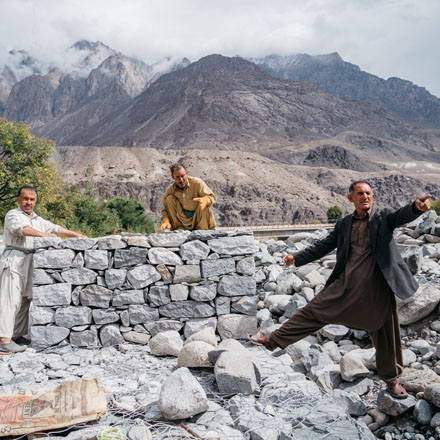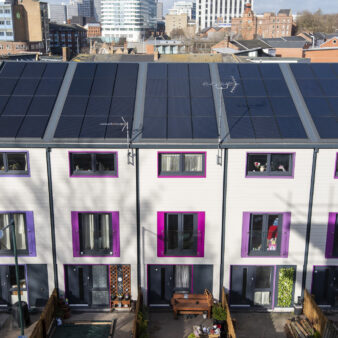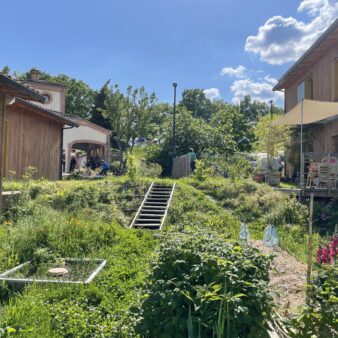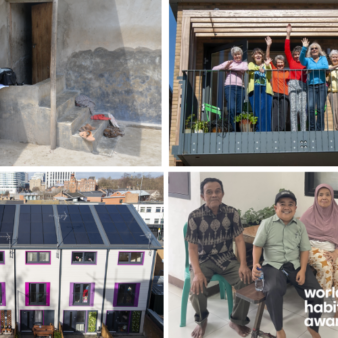
A unique approach that integrates disaster risk management into habitat planning and development in remote areas of Pakistan has today been named a Gold Award Winner in this year’s World Habitat Awards.
Integrating indigenous knowledge and technology for safer habitat, set up by the Aga Khan Agency for Habitat, Pakistan (AKAH Pakistan), combines local and scientific knowledge to map risks, determine residential and economic zones, and develop disaster management plans. AKAH geologists use satellite images and risk-mapping tools, with participation from residents, who contribute local knowledge and receive training on the process.
The northern mountainous areas – home to some of the most disadvantaged and isolated communities – are especially vulnerable to earthquakes, floods and many other hazards that have caused significant damage in recent years. The integration of hazard, vulnerability and risk assessments (HVRAs) into planning processes – for disaster preparedness, response, rehabilitation and development – enables communities to build in safer areas and protect against hazards.
To date, AKAH Pakistan has conducted HVRAs in 785 settlements, provided more than 20,000 households with technical assistance in maintaining and improving their homes, constructed over 4,000 shelters for internally displaced people, created more than 280 community disaster management plans, and trained over 50,000 volunteers in community-based disaster risk management.
Safaraz, aged 55, works as a mason and was displaced by the landslide in Attabad in 2010. He said: “It was the most horrible sight. There was chaos, with people shouting and running everywhere. Some were desperately searching for their family members. Most people had their faces fully covered with dirt; eyes were barely visible… We had no clue that one day, just like that, we would be left homeless, with nowhere to go.
“Previously, we used to construct houses merely of mud and stones, without planning of any sort. This house (constructed by AKAH) can’t be compared to our previous house (which was destroyed due to the disaster). They are simply worlds apart. It was only when AKAH had assessed the place (through HVRA) and declared it safer, the construction (of our house) had begun. This house is a proper house, unlike the previous one. It is so thermally comfortable and even keeps us warm in harsh winters. Proper lighting, water supply, and ventilation systems are there. I, along with my wife, had also actively participated with the organisation in its construction – it is ours and we love every bit of it.”
Maimunah Mohd Sharif, UN-Habitat Executive Director, said: “UN-Habitat commends Integrating indigenous knowledge and technology for safer habitat because of its community-based planning and risk management approach, integrating local knowledge. This is very much in line with UN-Habitat’s belief that when developing, formulating and implementing tools, policies and programmes, we should place people at the centre of our thinking and action.”
Leilani Farha, Global Director of The Shift, former UN Special Rapporteur on the right to adequate housing and one of the final judges, said: “This project led by the Aga Khan Agency for Habitat, Pakistan is the embodiment of a human rights approach to climate change adaptation policies. This novel project manages to combine indigenous knowledge, community involvement and technological advancements to ensure resilient, sustainable communities capable of living in dignity, security and peace amidst the rising threat of climate-induced disasters.”
David Ireland, Chief Executive of World Habitat, said: “The impacts of the climate emergency are felt in the high mountainous areas of Pakistan as much as anywhere else on earth with melting glaciers, unpredictable weather and flash flooding. What makes this project exceptional is that it’s not just responding to the effects of the climate emergency but is being proactive in protecting people from its effects – through using technology and the knowledge of the communities themselves. It provides communities with the knowledge of where and how to live in safety in a changing world. This has to be the best way for communities like this to protect themselves. The potential for this approach to be adapted and used in similar areas in Pakistan and elsewhere is absolutely huge. It will protect so many lives and make so many more communities sustainable.”
The World Habitat Awards judging panel said: “This project is an exceptional example of subtle innovation, creating new connections between technology and local indigenous knowledge. It takes a people-centred approach to preventing future risk, improving community resilience in what must be a very difficult area to work in.”
Each year the World Habitat Awards are presented to the most outstanding and innovative housing projects from across the world.




Join the discussion